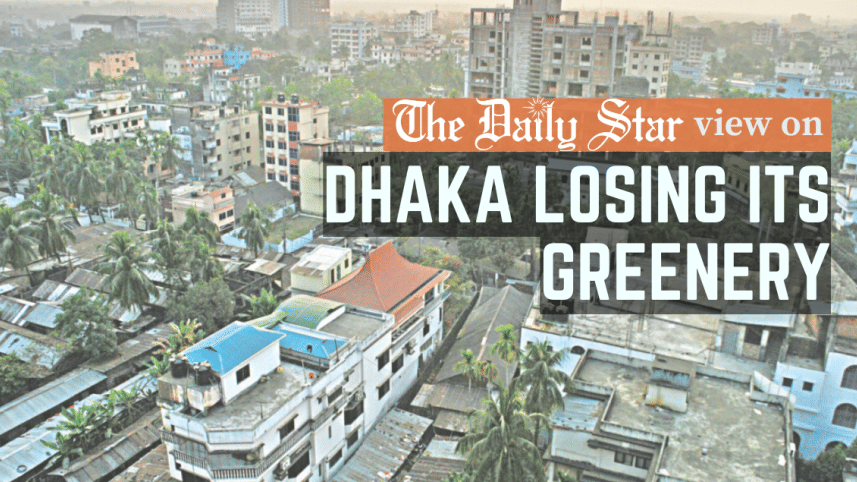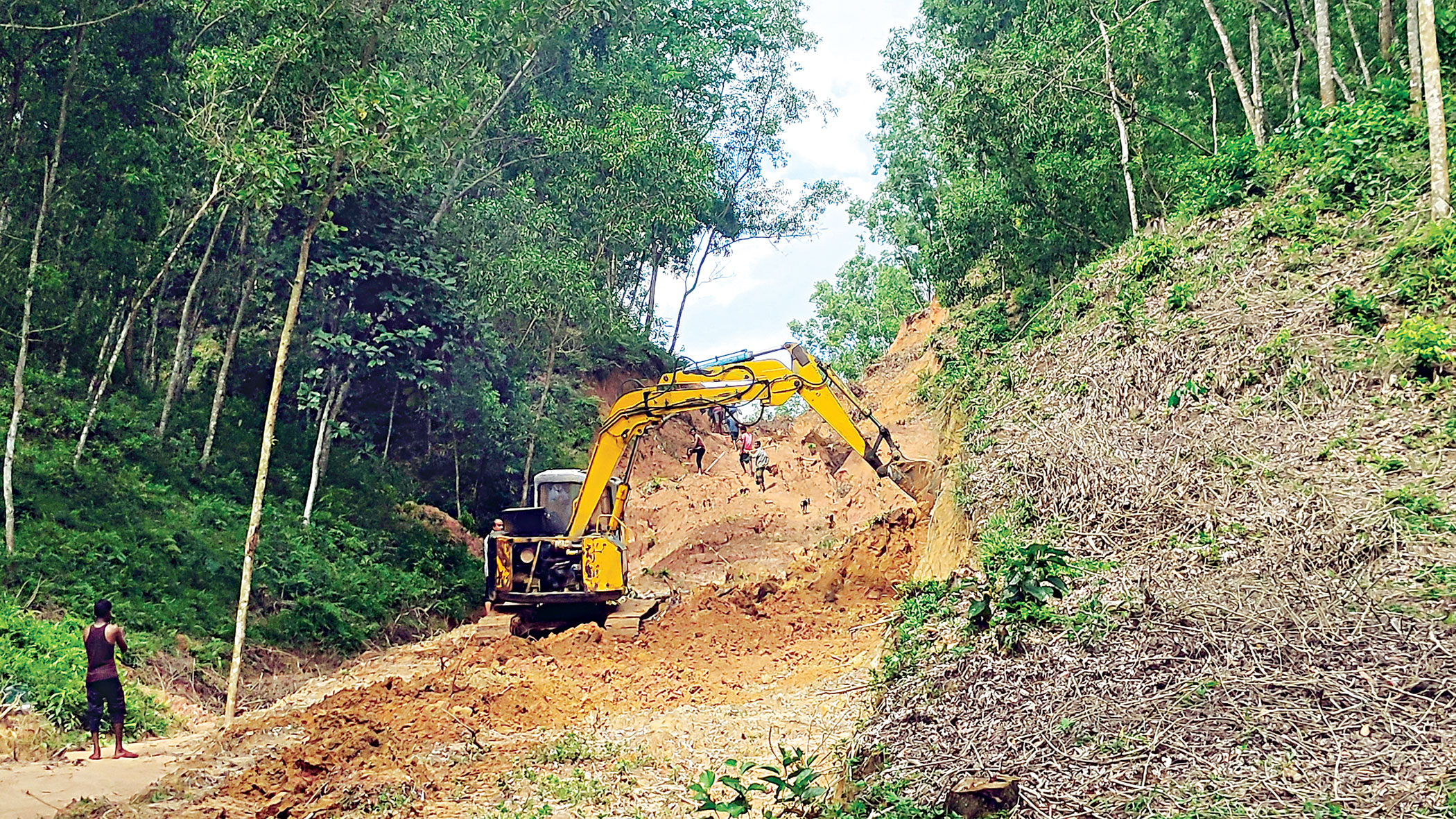There is a war going on against nature in Bangladesh

Imagine the worst thing that can happen to a city from an environmental point of view, and then multiply it by two. That, too, may not be enough to portray the disastrous transformation that Dhaka has been going through, with about 56 percent of its green spaces vanishing over the last three decades. That's the finding of a study covered in a recent report by The Daily Star. To convert it into numbers, the city had 12,745 hectares of vegetation in 1989. By 2020, it came down to just 5,599 hectares. The study reached this conclusion after analysing the historical changes of green spaces in the entire Dhaka metropolitan area.
Such statistics, however shocking, bring clarity to an otherwise jumbled state of affairs involving a rapidly evolving landscape. Its population boom and aggressive urbanisation meant not only unplanned construction of roads, residential buildings and industries, but also a steady depletion of green spaces such as parks, open grounds, trees, croplands, roadside plants and areas covered in any green infrastructure. Since 1989, Dhaka's green spaces with dense forest declined from 17 percent to 2 percent, while green spaces with moderate forest declined from 24 percent to 16 percent. While an ideal city should have at least 25 percent green space coverage, Dhaka has only 8 percent, according to the United Nations Environment Programme.
What happens when green spaces are encroached like this? Heat islands are created. As a result, Dhaka has witnessed a rise in temperature of nearly 3 degrees Celsius over the last 20 years – with its air, water and land pollutions rising to insane levels. This is a disturbing development, all thanks to our blind pursuit of development and poor urban planning. It's like we're waging a war against nature, not just in Dhaka but across the country as well. You see hills being levelled, waterbodies being filled or encroached, and forests being razed to the ground. Just as we write this, hills at the Holichhara tea garden in Kulaura, Moulvibazar are reportedly being cut to construct a road, without the approval of the Department of Environment.
But this is not a war we, or anyone, can win. Experts have thus called for an urgent solution to the damage done to nature, at a time when climate change is already wreaking havoc on Bangladesh. For Dhaka and other cities, they highlighted the importance of land-oriented mitigation measures such as creation or preservation of what little green space is available, through better urban and population planning, which can prevent the rise of temperature and other associated risks. Dhaka has a lot of undoing to do in this regard. We urge the government to take the warning signs seriously and take appropriate measures.



 For all latest news, follow The Daily Star's Google News channel.
For all latest news, follow The Daily Star's Google News channel. 

Comments